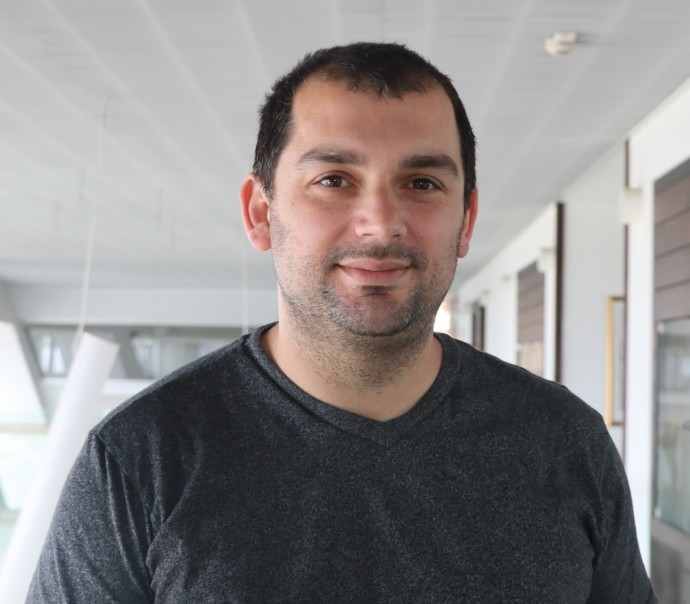Waste? Climate crisis? Droughts? Flooding? Climate refugees? Disappearance of bees? Food, energy and plastic from renewable, sustainable sources? These and many more questions are the subjects of study and broad public discourse currently taking place on environmental issues.
The environment is a matter close to the heart of each and every one of us; we all bear personal responsibility for the environment in which we live. Environmental issues are nonpolitical and nonpartisan, and bridge between different groups in Israeli society. Therefore, education, from kindergarten to university level, plays a critical role in forming the environmental approach of our society. However, how and when should we undertake studies in this area? The Department of Environmental Studies at Tel Aviv University takes a multidisciplinary approach.
The Department provides students and researchers a broad platform regarding the ways of understanding environmental issues, analyzing them, and developing methods of coping with them. Such methods may be either social or technological or a combination of both – from developing new reactors and organisms (development of organisms?) to preparing content for the education system, and policy-supporting documents for companies, municipalities and the government. The multidisciplinary approach enables deciphering the regulatory, technological, engineering, and scientific obstacles to understanding natural and anthropogenic processes, and trying to overcome them.

The Department of Environmental Studies plays a crucial role in forming a basis of knowledge to enable and support sustainable life both in and outside of Israel. It is important to ask intriguing and critical questions, and invest ample resources in order to collect data on the basis of which new insight may be gained to support sustainable development and life. Based on this insight, solutions may be developed in the social, managerial, and technological aspects. Environmental innovation requires examining the different levels of a problem.
This approach is reminiscent of the process performed in medicine, in which diagnosis and prescribing of treatment for each patient is based on information obtained from specific research as well as broad epidemiological studies. As in medicine, in the environment, problem-solving methods are of great importance to decision-makers. As in medicine, in environmental issues, cooperation between various experts—technological, scientific or social—is vital. We at the Department of Environmental Studies enable studying and experiencing in a multidisciplinary approach, subsequently leading to the ability to deal with the real problems we face.
Since its establishment two decades ago, the Department of Environmental Studies at Tel Aviv University leads in research and instruction of the environment and sustainability through a multidisciplinary approach. The Department's activity is recognized in Israel and worldwide for its groundbreaking research, multidisciplinary instruction, and social involvement, aimed at reaching all sectors of society around the world.
Through research and instruction, the staff of the Department of Environmental Studies focuses on the environmental challenges associated with understanding the impact of climate change and development of methods for dealing with the variety of problems deriving from the unlimited exploitation of natural resources such as land, water, plastic, and fossil energy sources. We study how the negative impact of development such as waste and disappearance of plant and animal species can be reduced, without jeopardizing fair access to food, water, energy, transportation, housing, and healthcare.
Through research and instruction, we learn to ask ethical and critical questions on the substance of sustainable existence, and develop measuring methods and technologies that contribute to it. The Department's research team has set up unique innovative laboratories in areas such as industrial ecology, urbanism, ecology and evolution of plants, infectious disease, environmental ethics, and environmental bioengineering.
The students in the Department come from a variety of academic and professional backgrounds. They come to us to acquire broad knowledge of the environment and sustainability, as well as tools for understanding the world around them and implementing these tools during their studies, at their place of work in industry, the third sector, government ministries, local authorities, and academia.
In order to provide the tools required in order to understand the environment and sustainability and implement them, we have put a special teaching staff at your disposal, made up of researchers and experts with a great deal of knowledge and experience in environmental activity.
The Department offers a wide range of options for post-graduate degrees, from an MA with or without a thesis, a one-year international MA without a thesis, and a PhD. We also invite you to take part in the Porter Intern Program during which you will get an opportunity to specialize in industry, local authorities, and environmental organizations, and even receive a specialization scholarship from us.
About two years ago, the Department of Environmental Studies joined forces with a Meir Medical Center research center to conduct joint activity on environment and health issues, in order to understand the issues related to hospital infrastructure, and offer multidisciplinary approach solutions to these challenges, including handling of waste, water and energy. In addition, fruitful academic and research cooperation is conducted between the bodies in areas of common interest. This year, a course will be opened for researchers from the Department and physicians from Meir Medical Center, in which they will present complementary aspects of the mutual effects of environment and health. They students will also carry out environmental projects in the hospital, under the guidance of Medical Center physicians and Department researchers.
Prof. Alexander Golberg – Head of the Porter School of Environment and Earth Sciences, Tel Aviv University
Prof. Michael Lishner – Former head of Meir Research, Meir Medical Center.
